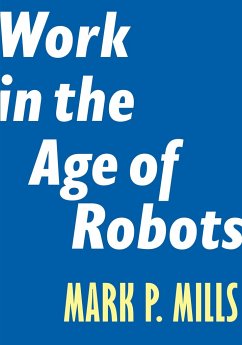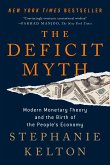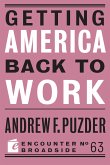Are robots finally replacing humans? Does the emerging age of artificial intelligence and automation mean we will soon see "peak jobs" and the need for a Universal Basic Income to support a widening swath of hapless citizens unsuited for employment in a primarily "knowledge" workforce? Improving productivity-reducing labor hours per unit of product or service-has been the hallmark of economic progress for centuries. But advances due to robots and AI, some say, will be fundamentally different because digital machines are ready to revolutionize the nature of work in nearly every sector, not just one or two. But the lessons of history and the realities of technologies suggest that, despite yet more disruption, the overall result will be net job gains and faster economic growth.
Hinweis: Dieser Artikel kann nur an eine deutsche Lieferadresse ausgeliefert werden.
Hinweis: Dieser Artikel kann nur an eine deutsche Lieferadresse ausgeliefert werden.








